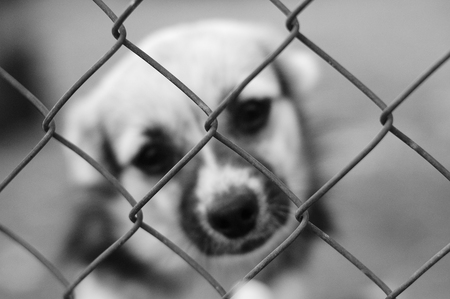Understanding Banned Species in the UK
When considering the prospect of keeping exotic or unusual pets, it is essential to first understand which species are entirely prohibited within the United Kingdom. The UK enforces strict regulations on certain animals to ensure public safety and protect native wildlife. Under legislation such as the Dangerous Wild Animals Act 1976, a range of creatures—such as big cats, primates, venomous snakes, and some large reptiles—are categorically banned from private ownership as pets. The reasoning behind these bans is twofold: firstly, many of these animals pose significant risks due to their size, strength, or potentially aggressive nature; secondly, their presence outside of professional settings could threaten local ecosystems if they were ever released or escaped into the wild. These laws reflect a broader commitment to animal welfare and responsible stewardship of both domestic and wild environments, helping to prevent accidents and ecological disruption while encouraging would-be pet owners to consider safer, more suitable companions.
Restricted Breeds: Licensing and Regulations
In the UK, keeping certain exotic and unusual pets isn’t simply a matter of personal preference—it’s governed by strict regulations. Some animals, though not outright banned, are classified as restricted breeds or species and require special licensing for private ownership. Understanding these rules is essential for anyone considering bringing a more unconventional companion into their home.
Which Pets Require Special Licences?
Several types of pets fall under licensing laws due to potential risks to public safety, animal welfare concerns, or ecological impacts. Below is a summary of some common categories of restricted pets:
| Type | Examples | Relevant Legislation |
|---|---|---|
| Certain Reptiles | Venomous snakes (e.g., cobras, vipers), monitor lizards | DWA Act 1976 (Dangerous Wild Animals Act) |
| Wild Mammals | Big cats, primates, wolves, some wild rodents | DWA Act 1976 |
| Dangerous Dogs | Pit Bull Terrier, Japanese Tosa, Dogo Argentino, Fila Brasileiro | Dangerous Dogs Act 1991 |
The Licensing Process: What to Expect
If you wish to keep any of these restricted animals, you must apply for a licence through your local council. Here’s an overview of what the process typically involves:
- Application Submission: Complete and submit the relevant application form provided by your local authority. Be prepared to provide details about your experience with the species, housing arrangements, and care plans.
- Inspection: The council will arrange an inspection of your premises to ensure it meets strict safety and welfare standards. This may involve checks on enclosure security, environmental enrichment, and provisions for veterinary care.
- Fees: Licensing usually incurs an annual fee which varies depending on the species and the complexity of care required.
- Approval & Conditions: If successful, the licence will be granted with specific conditions tailored to the species in question—for example, requirements regarding secure enclosures or restrictions on breeding.
- Renewal & Compliance: Licences must be renewed regularly. Routine inspections may occur to confirm ongoing compliance with regulations.
Caring Responsibly: A UK Perspective
The aim of these regulations isn’t just bureaucracy; it’s about ensuring both public safety and the wellbeing of animals that require specialist care. As a responsible pet keeper in Britain, it’s vital to respect these boundaries—by doing so, you’ll help foster an environment where both humans and their extraordinary companions can thrive safely and legally.

3. Caring for Unusual and Exotic Pets Legally
When it comes to keeping exotic or unusual pets in the UK, responsible ownership begins with understanding and respecting the legal framework. It’s not simply about acquiring an interesting companion; it’s about ensuring their welfare within the boundaries of the law. Here’s what every prospective and current exotic pet owner should know.
Proper Documentation: Your First Step to Legality
If your chosen species is on the restricted list, you must obtain the correct licences and permits from your local council or relevant authority before bringing them home. Always keep these documents up-to-date and readily available for inspection. This paperwork isn’t just a formality—it demonstrates your commitment to both animal welfare and public safety.
Enclosure Requirements: Creating a Safe Haven
Exotic pets often require specialist housing that meets their physical and psychological needs. Enclosures must be secure, escape-proof, and designed according to species-specific standards set by UK authorities. For example, reptiles may need controlled heating and humidity, while certain mammals require reinforced barriers. Regular checks and maintenance are essential to ensure ongoing compliance.
Accessing Experienced Healthcare Advice
Unlike cats or dogs, many vets aren’t familiar with the unique requirements of exotic animals. Seek out veterinary professionals who specialise in exotics and can provide routine check-ups as well as emergency care. Keep detailed records of health checks and vaccinations as part of your commitment to responsible pet-keeping.
In summary, caring for unusual and exotic pets in the UK is a rewarding challenge that demands thorough preparation, respect for legal boundaries, and continuous learning. By following official guidance on documentation, enclosures, and healthcare, you’re not just obeying the law—you’re giving your pet the best possible life in a safe environment.
4. Penalties and Consequences of Breaching the Law
When considering the appeal of keeping exotic or unusual pets in the UK, it is crucial to be aware of the serious legal ramifications that can arise from owning banned species or restricted breeds without proper licensing. The UK has stringent regulations designed to protect both animal welfare and public safety. Failure to comply with these laws can result in significant penalties, ranging from financial fines to criminal prosecution.
Legal Risks and Enforcement
Possessing a banned species or failing to secure the necessary licences for restricted breeds places owners at risk of enforcement action by local authorities or government bodies such as DEFRA (Department for Environment, Food & Rural Affairs). Inspections may be carried out based on tip-offs, routine checks, or concerns raised by neighbours. If you are found in possession of an illegal animal, authorities have the power to seize the animal immediately and begin legal proceedings.
Fines and Criminal Charges
The penalties for breaching animal control laws in the UK are not to be taken lightly. Depending on the severity of the offence and whether it is a repeat violation, you could face:
| Offence | Potential Fine | Imprisonment | Other Consequences |
|---|---|---|---|
| Keeping a banned species (e.g., under Dangerous Wild Animals Act 1976) | Up to £5,000 per offence | Up to 6 months | Animal seizure, disqualification from owning animals |
| Breach of licence conditions | Variable, up to £2,500 per offence | Possible, depending on case details | Revocation of licence, formal caution |
| Unlicensed breeding or sale of restricted breeds | Up to £20,000 per offence | Up to 12 months (on indictment) | Banning orders, confiscation orders |
| Mistreatment or neglect under Animal Welfare Act 2006 | Unlimited fine (post-2021 reforms) | Up to 5 years | Lifelong ban from animal ownership |
The Impact on Owners and Animals Alike
Aside from financial penalties and legal records, breaching these regulations often results in distressing consequences for the animals themselves. Confiscated pets may be rehomed, placed in sanctuaries, or—where necessary—euthanised if no suitable arrangements can be made. For responsible pet keepers who pride themselves on their care and dedication, this outcome can be heartbreaking. Moreover, those convicted can find themselves barred from keeping animals in future—a devastating prospect for any true animal enthusiast.
A Final Word on Compliance and Responsibility
If you are passionate about keeping exotic pets within the UK, it is essential to stay well-informed about current legislation and best practices. Always consult reputable sources before acquiring any animal that may fall under restricted categories. By doing so, you safeguard not only your beloved pets but also your own peace of mind and standing within the wider community of responsible keepers.
5. Ethical Considerations and Animal Welfare
When it comes to keeping exotic and unusual pets within the UK, ethical considerations are just as important as legal compliance. As responsible keepers, we must reflect on our moral obligations towards the animals in our care, especially given their complex needs and the potential impacts on local ecosystems.
Animal Welfare: Meeting Complex Needs
The welfare of exotic pets is a pressing concern for both owners and regulators. Many of these species require highly specialised environments, diets, and routines that can be difficult to replicate outside their natural habitats. In Britain, the Animal Welfare Act 2006 sets clear standards, mandating that all pets must have their five basic needs met: a suitable environment, diet, the ability to exhibit normal behaviour patterns, housing with or apart from other animals as appropriate, and protection from pain, suffering, injury, and disease. For exotic species, fulfilling these requirements often demands extensive research and commitment.
Biosecurity: Protecting Local Wildlife
Another ethical consideration is biosecurity—the responsibility to prevent non-native species from impacting British wildlife or spreading diseases. Escaped or released exotics can become invasive, threatening native fauna and flora. For example, past introductions such as the grey squirrel have had lasting effects on local ecosystems. Responsible ownership means ensuring enclosures are secure and taking steps to avoid accidental releases.
Conservation Concerns: The Wider Impact
There is also a broader conservation issue at stake. The trade in exotic pets can contribute to declining wild populations if not managed sustainably. Purchasing animals from reputable breeders who follow ethical guidelines helps reduce pressure on wild stocks. Moreover, by avoiding banned or restricted species, British pet keepers support global efforts to protect endangered animals and preserve biodiversity.
Cultivating Compassionate Stewardship
Ultimately, keeping an exotic pet in Britain should go beyond personal interest—it is about compassionate stewardship. This involves honest self-reflection about whether one can truly meet an animal’s needs for its entire lifespan. By prioritising animal welfare and considering the wider ecological consequences of our choices, we honour both our legal obligations and our shared responsibility to protect Britains natural heritage.
6. Helpful Resources and Support for Exotic Pet Owners
Owning an exotic or unusual pet in the UK requires not only passion but also a clear understanding of legal responsibilities and best welfare practices. Fortunately, there are numerous organisations, government agencies, and community groups dedicated to guiding and supporting responsible exotic pet ownership within the law.
Useful Organisations
Several respected charities and associations work tirelessly to offer information and support for exotic pet owners. The RSPCA (Royal Society for the Prevention of Cruelty to Animals) provides detailed care guides and updates on legislation affecting animal welfare. The BVA (British Veterinary Association) is another key resource, offering expert advice on health, welfare, and the legalities surrounding less common pets.
Government Contacts
The UK government’s official website, GOV.UK, remains the authoritative source for up-to-date lists of banned species and restricted breeds under the Dangerous Wild Animals Act 1976 and other relevant legislation. Local councils also play a crucial role—particularly for licences or permits—so contacting your local authority’s animal welfare officer is always recommended when considering an exotic pet.
Community Groups and Online Forums
Connecting with fellow enthusiasts can be invaluable. National clubs such as the British Herpetological Society cater to reptile and amphibian keepers, while specialist Facebook groups or forums like Exotic Pets UK allow for sharing experiences, sourcing reputable breeders, and finding practical advice tailored to UK laws. Remember to verify that any group you join encourages responsible and lawful pet keeping.
Specialist Vets and Rescue Centres
Seeking out veterinary practices with experience in exotic species is essential. Many will advertise their specialism or can be found via directories provided by the British Veterinary Zoological Society. Additionally, rescue centres such as The National Centre for Reptile Welfare can offer guidance if you need to rehome a pet or require emergency support.
A Final Word on Staying Informed
Laws governing exotic pets are subject to change; regular checks with the above resources ensure you remain compliant and provide your animals with the highest standard of care. By staying connected with reliable organisations and fellow keepers, you’ll enjoy both peace of mind and a rewarding experience as a responsible exotic pet owner in the UK.


